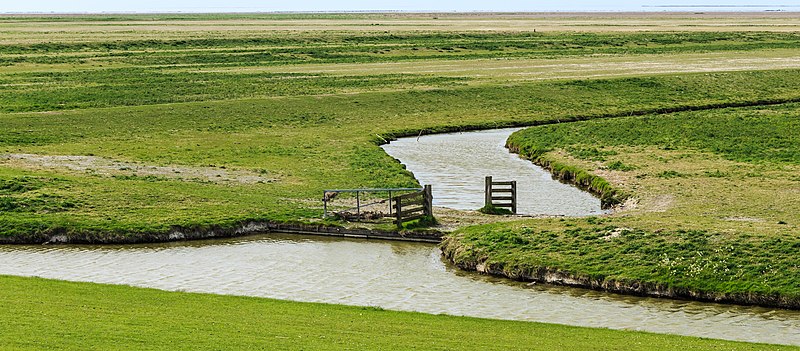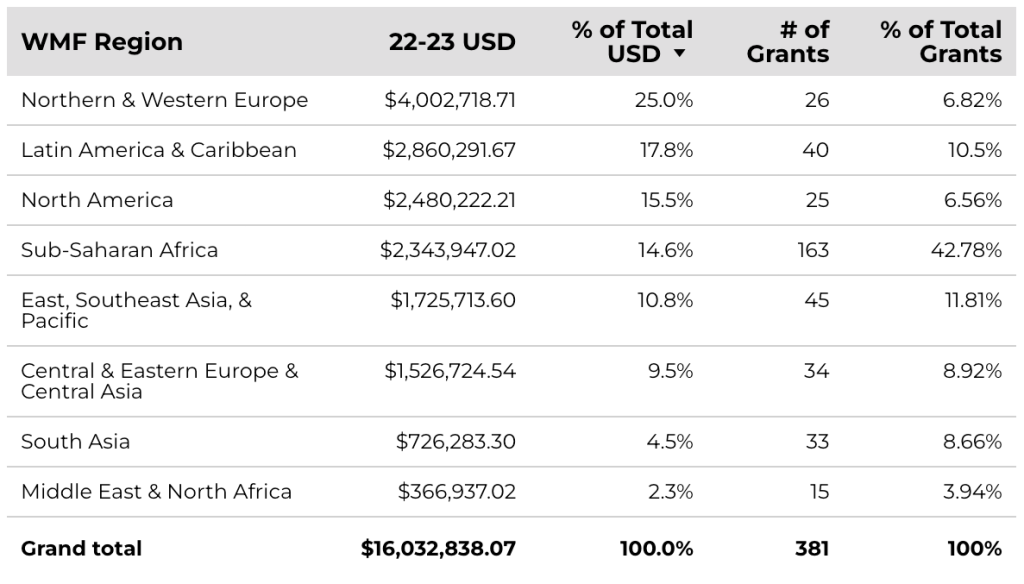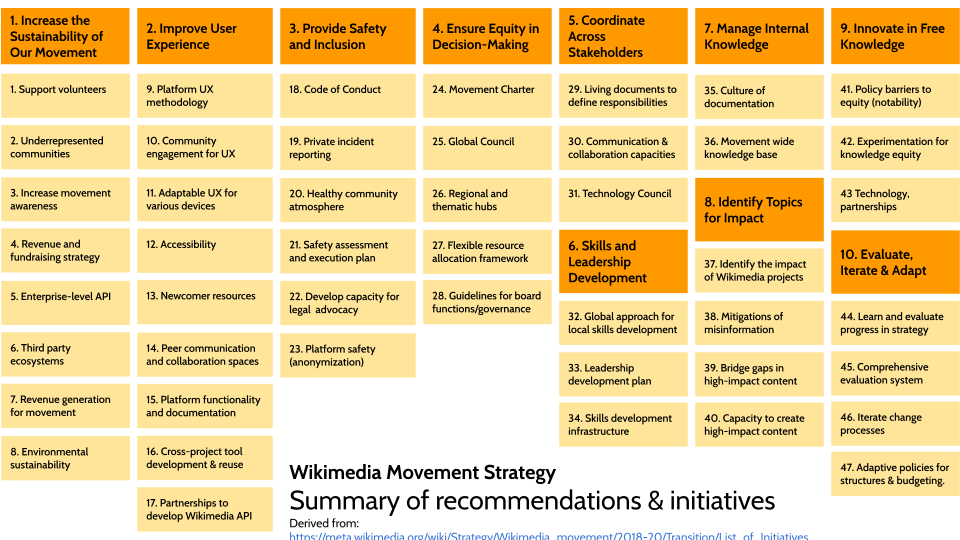On October 24-25, the EDs of Wikimedia organizations met in Utrecht, the Netherlands, and online.
The ED group (Executive Directors Group) is constituted of 25 individuals who share their experience and learn from one another. I had the honor of being accepted to join that group early 2023 in my role as co-executive director of Wiki in Africa.
The Utrecht retreat aimed to welcome new members, address issues with the Global Council draft, engage in candid discussions among Executive Directors, and consider requests for new ED additions. The event concluded with a virtual meeting with Wikimedia Foundation Leadership to share insights and plans.

Be like water making its way through cracks. Do not be assertive, but adjust to the object, and you shall find a way around or through it.
Executive Directors Collaborate for Learning, Support, and Global Movement Growth
The group members work together to
- Share learning and build capacity within the Wikimedia movement and our communities
- Provide support to new members and affiliates by mentoring and sharing best practices with the aim of building a more diverse movement
- Build networks of mutual cooperation, support and trust
- Design bilateral or multilateral projects to foster cooperation between Wikimedia organizations and communities
- Work in a coordinated manner for the development and growth of the global Wikimedia movement
From what I could gather, over the past few years, ED meetings have been very much focused on the development of the Movement Strategy. Many members of the group have been actively involved in the process, as members of various working groups and drafting committees. Now topics of interest are still related to the development of the Mouvement Strategy, the principles, but also at the implementation. Fast forward to today, we’re still buzzing about the Movement Charter and Global Council. But hold your horses; there’s more!
The Utrecht Utrecht Retreat Unveils Goals: Welcoming, MCDC Response, and Strategic ED Discussions
The group had planned this retreat for some time and an agenda had been set. The event went as planned, including:
– Welcome and Connect: Greet new members, catch up, stir up some nostalgia, and spill the beans on what’s happening in our organizations, what’s hot (or not).
– MCDC Response: Dive into the drama around the Global Council draft and develop a response (read Global Council draft comes under fire from European Wikimedians for more context)
– ED Real Talk: Discuss the operational nitty-gritty reality of our ED lives – governance, outreach, brainstorm collaborative initiatives and hatch practical ideas and actionable steps for implementing mouvement strategy initiatives, without waiting for the issues around Global Council and Charter being settled down.
– ED Additions: discussion about 3 requests from EDs to expand the crew.
– Wikimedia Foundation Pow-Wow:At the end of the second day, the group had a virtual meet with Wikimedia Foundation Leadership (Maryana Iskander and her senior management team – remote). This meet was the opportunity to share the most important ideas, concerns, hopes and plans that emerged during the two days. Sadly I missed that one, caught the last train to Paris.
My goal is certainly not to make an extensive report about that meeting, but simply to reflect on some of the discussions held and decisions made, which I thought of interest to share publicly. This post is my personal take. The group also agreed to follow the Chatham House Rule: We spill the tea on what was said but keep the mystery about who spilled it.
The first track of the retreat was about Movement Governance and Strategy (yes, again)
This generated nourrished conversations. One of the outcome of that track was the publishing of a statement that summarized conversations and reflected on EDs commonly shared concerns and opinions regarding the last draft of the Mouvement Charter and Global Council.
Distilling it down, the basic message of this statement can be summarized as this :
We ask the Movement Charter Drafting Committee to revisit and rewrite the Movement Charter text with the spirit, intent, and content of the principle of Inclusivity & Participatory Decision-Making in mind.
And
We ask the Movement Charter Drafting Committee to strip the Movement Charter text of detailed content and only focus on principles and essential structures. Detailed content should live in the texts of specific policies and agreements that can more easily be revised and amended over time.
Link to the full statement.

Lot’s of concerns raised (surprised ?)
During the retreat, all participants came with their specific concerns (recruitements, lack of political stability in their countries, conflicts, etc.). Drumroll please… there was a large general agreement that the main shared concerns were related to grantmaking, fund allocation and the recent global financial restrictions.
Here is the highlight of points raised (with some added thoughts and links for your reading pleasure) :
* All organizations feel the pressure of the inflation. Some orgs will need to let people go. Others have no financial cushion to deal with inflation and local currency fluctuations.
Quick head-up – I will note that the WMF is currently pushing for a global practice of managing grant agreements in each country local currency rather than in dollars. Time to embrace the diverse currencies of the world – dollars, you had a good run!
* The unclarity on how WMF funding decision is made for each request : for example whether final decisions of amounts and terms approved for each supported organization were made by grant committees or by Wikimedia Foundation grant team, and on which criterias those decisions were based is not so clear.
Psst! I will note that the WMF recently set up a pilot to add a review by Wikipedian experts in Education on some of the submitted grant requests. This seems to be a very good step in the right direction for a more transparent and inclusive system with a larger pool of feedback to base decisions on. I am aware of it only because I was asked to review a grant request myself, but I could not find public information shared about this pilot. Stay tuned.
* The unclarity of how decisions were made in terms of funding each geographical area.
The Movement Strategy outlines Inclusivity & Participatory Decision-Making as a basic principle for Movement governance. It is hoped that the Global Council will clarify decision-making processes, but till then, how funding of the different areas is made is unknown.
I will note that, so far, the very best public source of information on the matter remain the WMF annual plan (on which anyone can comment when it is in draft mode) and the excellent Funding Report provided by the Community Resources. You may also check out the regional declination (see the NWE here). They are your go-read (no one’s paying me to say it’s “excellent,” but trust me, it’s top-notch).
You may not be surprised to discover that 7 of the top 10 countries funded are in North West Europe (keeping in mind that many of the orgs in NWE region are relying largely on funds they raise by themselves locally, which is why Germany is only listed as receiving 0.83% of total grants). But it may come as a surprise to you to discover that Nigeria is the 2nd most WMF funded country after the USA, with no less than… 175 grants accepted during last fiscal year.
Now, let’s talk equity. I stay unaware of a any global analysis of the total level of funding used by Wikimedia orgs in each country worldwide. When equity is in mind, decisions of funds allocated by WMF per region can not really be challenged anyway until we actually know how many funds are actually globally used in each country/region. To give an example, Wikimedia Deutschland reports a revenue of 12.5 millions euros in 2022 on their website, whilst WMF funding in the entire NW Europe region is 4 millions according to the « measures of funding equity » paragraph.
Which… opens a new box… who has the responsibility to collect information such as the budget of every single organization in the wikimedia movement ? Is there a central place where this information might be available with a high level of trust ?
The most advanced public source of information on that topic is the Wikimedia Affiliate Data Portal/Report, which is often outdated and slightly unreliable. It is unfortunately non editable and does not tell the whole story. For example, it does not include some organizations which are clearly part of our whole story, but chose not to be affiliates, such as Kiwix.
Another great source of information is to dig up data directly from the grant space, manually looking at every single grant request approved. In many cases, the organizations budget is not public, but with lot’s of leg work… a full picture may unveil.
TL;DR: we are in the dark about the global movement budget.
* The rapid change of narration within the past year, but also the timing of the financial decisions and how they were communicated (in some geographies)
Even a month ago, some EDs were still under the impression that money was flowing freely and that they could generously increase their grant request to the Wikimedia Foundation this year (as it was suggested to them a few months ago). They were in for a rough awakening when they were informed very late in the process that they had to keep budget tight. The lack or late communication is certainly a challenge for directors of organizations with fixed expenses (staff, offices etc.), in addition to the lost time spent on programs with no future.
I was myself a bit surprised by the misperception that money was still freely flowing given the many negative signals over the last year :
– fundraising banner changes on the English Wikipedia end of 2022 led to a shortfall of $5.3 millions dollars)
– the annual plan of the Wikimedia Foundation announcing intents to slow down growth and sharing perspectives on revenue/product trade-offs.
– the Wikimedia Staff staff reduction by 5%
– the finances section of the annual plan 2023/2024 is making it pretty clear what our challenges are.
But it seems warning signals were not sufficient or were not communicated well enough in time in some geographies. Communication needs to happen in a timely manner so the affiliates can prepare and manage the risks.
* the recent rapid growth of some orgs budget in under-supported regions, with limited incentive and/or support to work on governance and develop checks and controls.
I will note though, that recent budget restrictions and admitting the low impact of some of the funding distributed to ineffective organizers might bring in some changes (see a new approach to contributor growth in Africa)

* The unequity regarding staff benefits movement wide.
As pointed out in this Diff post by WMF in April 2023, benefits are “an important way […] to attract, engage and retain talent, as well as provide staff with safety around their well-being so that they can perform well in their roles.” Whilst WMF is dedicated to improving equity in WMF employment practices, there is severe inequity within our own movement, with situations ranging from some organizations providing good salaries + full package benefits whilst other organizations struggle hiring or retaining qualified individuals due to poor salaries, lack of proper contractual agreements, no health care of retirement benefits or no policies in place to ensure personal safety or proper working conditions. Not to add high uncertainty due to the fluctuation of organizations allocated grants.
* Our discussion moved to risk management and affiliate governance. Amongst many points raised and suggestions shared, it was pointed out that Wikimedia affiliate staff are currently in a sort of no-mans land, neither Wikimedia Foundation staff members, nor community members, often overlooked within mouvement structures and policies. The fact staff members are often also volunteer wikimedians does not make things simpler.
* Also there are huge inequities between staff members accross the movement. Some being fairly well covered by appropriate contractual agreements, protected by worker laws of their country, within salaries common practices. Other staff members… are not. Some EDs argued for equity for staff accross the movement.
Ah, the quest for worker rights equity ! – not the most thrilling concept. I must admit there are reasons of concerns sometimes. Picture this:
* there is no collective process for handling an open conflict between an ED and its board (a not so-unusual situation, which Wikimedia France was involved in a few years back),
* there are no clear rules or guidelines regarding editing Wikipedia by (non WMF) staff
* in many cases, there are no clear rules regarding (non WMF) staff joining a committee (though some committees have guidelines)
* Scholarships for events? unclear. Some affiliates have travel budget, some don’t. And some staff are also part time volunteers… (on the topic, read the recent decision of the Wikimania COT to separate scholarship management of affiliate staff versus volunteers : asking a scholarship to Wikimania).

Making wishes to the strategy fairy
On day two, we gathered a working group session -– think strategy brainstorming but with more coffee and stroopwafels (we are in Netherlands after all !). We discussed areas of Mouvement Strategy implementation that felt neglected and where we could advance, see what could be feasible and come up with the next steps plan. 12 propositions were listed, categorized by WM Strategy Recommendations, and then we played the voting game. The three topics which retained the most votes were then discussed.
The most supported idea was to implement Board and ED training, using already existing material (such as the Code of conduct and conflict of interest policies page) and creating new ones. Final products for this idea could be:
- a landing page on Meta with information, materials – very brief checklist with links to more information + video 1-2 hours max.
- a procedure to spread the information with new board members & EDs
- and regular (online) events – e.g. semi-annual training sessions
A list of practical to-does to implement that idea has been crafted.
A second supported idea was to develop a pilot for resource allocation in North West Europe, relying on Wikimedia Europe. The purpose would be to have more agency over the ressources allocation process. A workflow for a three-year trial and a collection of next steps were produced.
The third most supported idea was for affiliates to collaborate to fix the issues related to software development and tools from movement actors, often ending up not maintained due to unclear roles and responsabilities and lack of funding, resulting in upset communities, and discouragement of volunteer developer due to backlog in things going live. Again, steps and timeline were worked on to build up pressure to make truly a change happen.
Finally, the meeting hosted a conversation about three candidates to join the ED group. Nourrished talk concluded the original criterias to join the group needed to be revisited to better address the challenges of the ever changing Wikimedia ecosystem (eg, what defines an ED in our context?)
Gratitude and Acknowledgment
All in all, it was a good retreat, with professionnal, yet friendly conversations. It was inspiring to spend time with people sharing specific challenges rarely discussed within our community (such as recruitements of paid staff, management issues, legal pitfalls, struggles with banks, conflicts of interest etc.). Our hosts at Wikimedia NL in Utrecht greeted us with warmth, and dinner with some board members was the cherry on top. We also did a small tour on day 1 at lunch time. Massive thanks to Jenny Ebernmann of Wikimedia CH for making my travel dreams to Utrecht a reality.
A common perception at the meeting was that we are at a point where it is crucial to move away from governance and movement strategy discussions and conceptualize practical problem areas that can be solved. We reached a collective “aha” moment – let’s dive into practical problem-solving. We can start working on problems and see whether and how they can be solved. Then build governance structure around that. There is value of doing things in parallel, because not everyone can relate to abstract matters – some people need more practical discussions and action to bring more people into the debate. I felt grateful for those discussions, the laughs, the insights and the chance to spend some time with EDs who do not usually cross my path (or me theirs).

Can you help us translate this article?
In order for this article to reach as many people as possible we would like your help. Can you translate this article to get the message out?
Start translation
